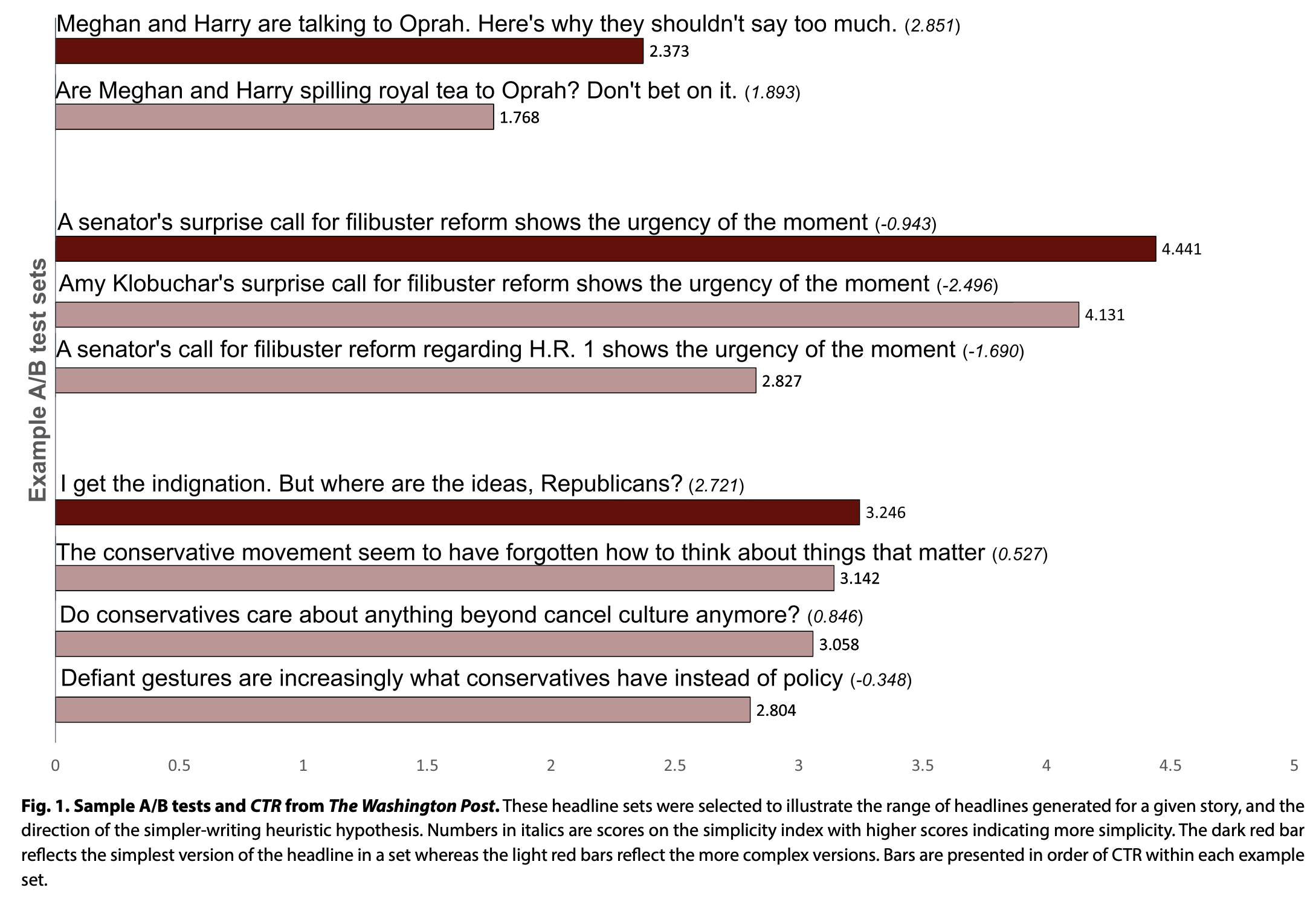A new study shows that readers prefer simple, straightforward headlines over complex ones.
The researchers, Hillary C. Shulman, David M. Markowitz, and Todd Rogers, did over 30,000 experiments with The Washington Post and Upworthy.
They found that readers are likelier to click on and read headlines with common, easy-to-understand words.
The study, published in Science Advances, suggests that people are naturally drawn to simpler writing.
In the crowded online world, plain headline language can help grab more readers’ attention.
Field Experiments and Findings
Between March 2021 and December 2022, researchers conducted experiments analyzing nearly 9,000 tests involving over 24,000 headlines.
Data from The Washington Post showed that simpler headlines had higher click-through rates.
The study found that using more common words, a simpler writing style, and more readable text led to more clicks.
In the screenshot below, you can see examples of headline tests conducted at The Washington Post.
 Screenshot from: science.org, June 2024.
Screenshot from: science.org, June 2024.A follow-up experiment looked more closely at how people process news headlines.
This experiment used a signal detection task (SDT) to find that readers more closely read simpler headlines when presented with a set of headlines of varied complexity.
The finding that readers engage less deeply with complex writing suggests that simple writing can help publishers increase audience engagement even for complicated stories.
Professional Writers vs. General Readers
The study revealed a difference between professional writers and general readers.
A separate survey showed that journalists didn’t prefer simpler headlines.
This finding is important because it suggests that journalists may need help understanding how their audiences will react to and engage with the headlines they write.
Implications For Publishers
As publishers compete for readers’ attention, simpler headline language could create an advantage.
Simplified writing makes content more accessible and engaging, even for complex articles.
To show how important this is, look at The Washington Post’s audience data from March 2021 to December 2022. They averaged around 70 million unique digital visitors per month.
If each visitor reads three articles, a 0.1% increase in click-through rates (from 2.0% to 2.1%) means 200,000 more readers engaging with stories due to the simpler language.
See also: Title Tag Optimization: A Complete How-to Guide
Why SEJ Cares
Google’s recurring message to websites is to create the best content for your readers. This study helps demonstrate what readers want from websites.
While writers and journalists may prefer more complex language, readers are more drawn to simpler, more straightforward headlines.
How This Can Help You
Using simpler headlines can increase the number of people who click on and read your stories.
The study shows that even a tiny increase in click-through rates means more readers.
Writing simple headlines also makes your content accessible to more people, including those who may not understand complex terminology or jargon.
To implement this, test different headline styles and analyze the data on what works best for your audience.
Featured Image: marekuliasz/Shutterstock
Source link : Searchenginejournal.com
